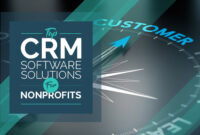Customer relationship management (CRM) software is a vital tool for businesses to manage their customer interactions and sales processes. The retail industry, in particular, can benefit greatly from using CRM software to enhance customer experiences, boost sales, and streamline operations. In this article, we will review the 10 best CRM software options for the retail industry.
1. Salesforce
Salesforce is a cloud-based CRM software that offers a range of features to help businesses manage customer relationships. Its retail-specific features include inventory management, order management, and customer segmentation. It also integrates with other retail tools such as Shopify and Magento.
Pros:
- Offers a wide range of features
- Integrates with retail-specific tools
- Scalable for businesses of all sizes
Cons:
- Can be expensive
- Steep learning curve for new users
2. HubSpot
HubSpot is an all-in-one marketing, sales, and customer service platform that includes CRM functionality. Its retail-specific features include sales automation, email marketing, and customer feedback management. It also integrates with popular retail tools such as WooCommerce and BigCommerce.
Pros:
- All-in-one platform for sales and marketing
- Integrates with popular retail tools
- Customizable to fit business needs
Cons:
- Free version has limited features
- Can be overwhelming for new users
3. Zoho CRM
Zoho CRM is a cloud-based CRM software that offers a range of features to help businesses manage customer relationships. Its retail-specific features include inventory management, order management, and customer segmentation. It also integrates with popular retail tools such as Shopify and Magento.
Pros:
- Affordable pricing for small businesses
- Easy to use interface
- Integrates with popular retail tools
Cons:
- Limited customization options
- Some features are only available in higher-priced plans
4. Pipedrive
Pipedrive is a CRM software designed for sales teams. Its retail-specific features include pipeline management, lead tracking, and sales forecasting. It also integrates with popular retail tools such as WooCommerce and Shopify.
Pros:
- Easy to use interface
- Customizable to fit business needs
- Integrates with popular retail tools
Cons:
- Limited features for customer service and support
- Not ideal for larger businesses
5. Freshsales
Freshsales is a CRM software designed for sales teams. Its retail-specific features include lead and deal management, email tracking, and customer segmentation. It also integrates with popular retail tools such as Shopify and Magento.
Pros:
- Easy to use interface
- Integrates with popular retail tools
- Customizable to fit business needs
Cons:
- Some features are only available in higher-priced plans
- Limited customization options
6. Agile CRM
Agile CRM is a cloud-based CRM software that offers a range of features to help businesses manage customer relationships. Its retail-specific features include inventory management, order management, and customer segmentation. It also integrates with popular retail tools such as Shopify and Magento.
Pros:
- Affordable pricing for small businesses
- Easy to use interface
- Integrates with popular retail tools
Cons:
- Limited customization options
- Some features are only available in higher-priced plans
7. Insightly
Insightly is a CRM software designed for small businesses. Its retail-specific features include contact management, project management, and customer segmentation. It also integrates with popular retail tools such as Shopify and WooCommerce.
Pros:
- Affordable pricing for small businesses
- Easy to use interface
- Integrates with popular retail tools
Cons:
- Limited features for larger businesses
- Limited customization options
8. Copper
Copper is a CRM software designed for small businesses. Its retail-specific features include sales automation, contact management, and customer segmentation. It also integrates with popular retail tools such as Shopify and WooCommerce.
Pros:
- Easy to use interface
- Integrates with popular retail tools
- Affordable pricing for small businesses
Cons:
- Limited features for larger businesses
- Limited customization options
9. Infusionsoft
Infusionsoft is a CRM software designed for small businesses. Its retail-specific features include sales automation, lead tracking, and customer segmentation. It also integrates with popular retail tools such as Shopify and WooCommerce.
Pros:
- Offers a wide range of features
- Integrates with popular retail tools
- Customizable to fit business needs
Cons:
- Expensive pricing for small businesses
- Steep learning curve for new users
10. Microsoft Dynamics 365
Microsoft Dynamics 365 is a cloud-based CRM software that offers a range of features to help businesses manage customer relationships. Its retail-specific features include inventory management, order management, and customer segmentation. It also integrates with popular retail tools such as Shopify and Magento.
Pros:
- Offers a wide range of features
- Integrates with popular retail tools
- Customizable to fit business needs
Cons:
- Expensive pricing for small businesses
- Steep learning curve for new users
Conclusion
Choosing the right CRM software for your retail business can greatly improve customer experiences, boost sales, and streamline operations. Consider the features, pricing, and integrations of each software option before making a decision. With the 10 best CRM software options for the retail industry listed above, you can find the perfect fit for your business.



